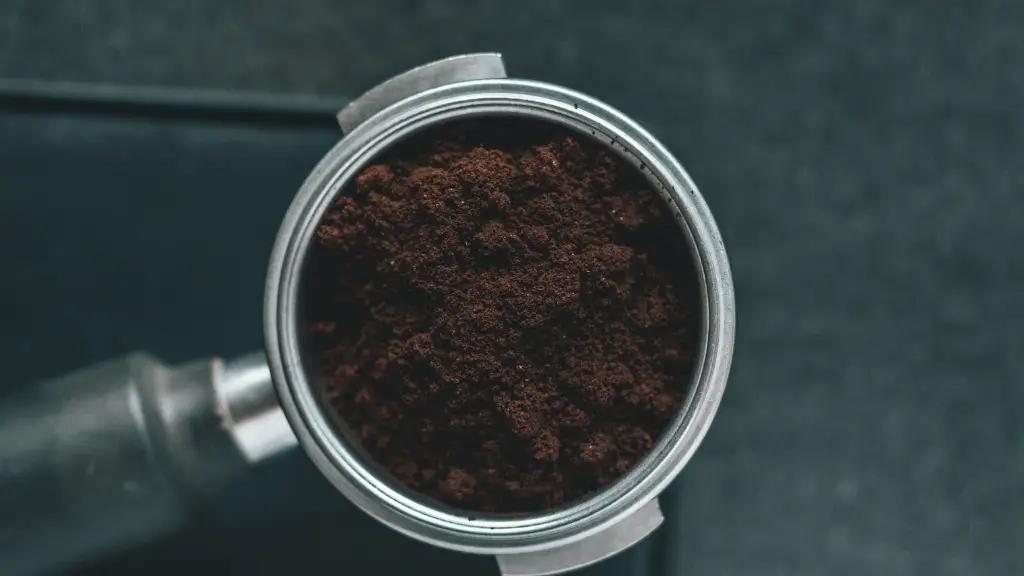Can I Die from Drinking Too Much Coffee?
At a certain point, coffee can be hazardous to your health. In moderation, most people can enjoy coffee and get its benefits but when coffee is consumed in excessive amounts, it can be more than just a caffeine buzz. Overindulgence can affect energy levels, productivity, emotions, and even physical and psychological health.
According to a study conducted by the American Academy of Neurology, drinking 6 or more cups of coffee per day can lead to an increased risk of death.1 Even if you don’t drink this much, excess caffeine intake can still cause a variety of symptoms such as nausea, headaches, jitters, anxiety, irregular heartbeat, and insomnia. These can have adverse effects on your productivity and well-being, and repeated episodes may eventually lead to chronic health issues.
Caffeine also elevates cortisol production in the body, which can result in chronic exhaustion and stress2. People that consume high amounts of caffeine for long periods of time will become desensitized to the effects of its stimulant qualities, causing them to require more and more in order to feel adequately alert. Overuse can also lead to nutrient deficiencies and addiction, and may result in the craving of more caffeine.
Furthermore, a rise in blood pressure can occur when drinking coffee which can aggravate underlying cardiovascular issues3. High intakes can also cause stomach pains, difficulty concentrating, and dehydration as it is a diuretic, meaning that it causes the body to eliminate water more often than is necessary.4 People that are sensitive to caffeine should especially take caution when drinking coffee and consult their doctor if they experience any of these symptoms.
Therefore, although it may seem harmless, it is important to regulate engaging in coffee drinking. For people who are at risk of developing serious complications from caffeine, it is best to avoid it.
Effects on the Disposition
Those who drink large amounts of coffee may develop an addiction, as the effects of caffeine can lead to a need for more to experience the same high as before. Thus, coffee can affect the disposition as it can lead to an altered state and is not necessarily helping with staying productive or having a clear head.
When coffee overconsumption is combined with stress, a person enters into a harmful loop where they drink more and more coffee to combat the stress, which in turn increases the stress and leads to the need for more coffee. This results in the coffee drinker entering into unhelpful habits such as distracting themselves to make time pass quicker, procrastinating, impacting their ability to make important decisions, clouding their judgement and so on.
The amount of cortisol that enters the body that is stimulated by the consumption of an excess of coffee causes it to over-secrete and having an overall negative effect. This can slightly numb the adrenal glands and cause long-term impairment to the body. Moreover, according to the American Psychological Association, drinking large amounts of coffee can mask underlying mental health issues such as anxiety, bipolar disorder, depression and even schizophrenia.5
Excessive caffeine leads to an inability to make rational decisions in actions, and leads to jitteriness. This can be further damaging as it causes the person to focus on the wrong things and feel overwhelmed and frustrated when facing a challenge. Such emotions can lead to physical fatigue and mental health disorders, thus should be avoided.
Impact on the Skin
Drinking large amounts of coffee can cause dehydration and when your body is not getting enough water, the signs tend to show up on the face. When your body is dehydrated the skin becomes parched and dry and prone to wrinkles and fine lines6. Moreover, this accelerates the aging process, thus excessive coffee drinking can be a contributing factor to premature aging.
Having too much caffeine can also cause your body to release excess amounts of cortisol which in turn breaks down collagen. Collagen helps make up the elasticity and suppleness of the skin and this means that drinking too much coffee make the skin lose its fullness and elasticity, causing wrinkles and dull complexion. It also leads to puffiness and dark circles around the eyes, further affecting a person’s appearance.
Moreover, those who drink too much coffee might suffer from acne breakouts as this habit tends to increase oil production in the skin. The complexity of the process is that caffeine consumption increases the cortisol hormone which in turn increases sebum production in the skin which results in acne breakouts. This can be further damaging for people with darker skin as it increases the chances for dark spots and post-acne marks to become more permanent.
Effects on Oral Health
Coffee, being an acidic drink, affects the enamel of the teeth. Enamel erosion is increased due to exposure to coffee and its acidic content. This leads to an increased risk for tooth decay and cavities. Moreover, the staining capacity of coffee is highly damaging for the teeth as the brown pigments of the coffee penetrate the tooth structures after extended exposures.7 These stains can be difficult to remove, however they can be removed through regular brushing and regular dental cleanings.
Furthermore, coffee contains tannins which are a type of polyphenols that are known to clump proteins in your saliva. This in turn makes it more difficult for your saliva to thin out the food particles that could be stuck in between your teeth and the bacteria that produces this food is then able to consume it, catalyzing the enamel erosion process.8 In addition, coffee also affects the pH balance of the mouth and disrupts the delicate plaque balance which can cause headaches, toothaches and can create further damage in the mouth.
Consuming coffee also causes the saliva to become drier as saliva is considered to be an important lubricant for teeth. Inadequate saliva levels can result in a decrease in the protection level of teeth against bacteria and can speed up the decay process.
Impact on Energy Levels
While coffee is known to have stimulant properties, it can ironically have the opposite effect after prolonged use. Chronic excessive intake of coffee leads to the reliance on coffee in order to achieve the same level of energy. This will result in having energy crashes after the stimulating effects of coffee wears off.9 The problem is that coffee works by flooding the body with cortisol and adrenaline so it is trying to stay alert due to a false sense of energy rather than real, sustainable energy.
Over time, this will result in increased exhaustion, as the body starts to become desensitized to the effects of coffee and requires more and more of it in order to achieve the desired effects. This in turn, not only has damaging physiological effects, but it can also affect a person’s mindset and motivation as the lack of sustenance from the false energy can lead to a lack of focus and feeling run down.
Moreover, drinking too much coffee can also lead to a rise in insulin levels that can result in fatigue, as the excess levels of insulin can lead to hypoglycemia which can be a contributing factor to lethargy and chronic exhaustion.10 This can have a severe impact on the quality of your life and feelings of productivity, as well as hindering your ability to be motivated and perform to the best of your abilities.
Consequences on Other Organs
Since too much coffee drinking raises cortisol levels, it almost always eventually leads to elevated blood sugar levels as well. This can be damaging to the kidneys as it causes the cells to be hyper-stimulated. Moreover, the dehydration associated with high consumption of coffee can lead to further damage to the kidneys, as the body must take fluids from elsewhere. The result is a dehydration of the kidneys, leading to more strain and damage on the organ.11
This high consumption of coffee can also be damaging to the heart. When drinking high amounts of coffee, the cardiovascular system is affected as the caffeine leads to an accelerated heart rate. Moreover, high caffeine consumption also causes a constriction of the blood vessels and have a correlation with an increased risk of coronary artery disease.
In addition, constant consumption of coffee can lead to digestive issues such as cramps, diarrhea and a bloated stomach. It can lead to an erosion of the stomach lining, which in turn causes more irritation and further digestive issues. This can also be damaging in the long run, as it can cause further problems with digestion if left unchecked.
Conclusion
Though coffee has numerous proven benefits for those who consume it in moderation, overconsumption can have serious consequences. Not only can it have a detrimental effect on one’s mental and physical wellbeing, it can also have a detrimental effect on the skin, teeth and other organs. Therefore, drinking coffee should be done in moderation and people who are particularly sensitive to caffeine should avoid it altogether.





